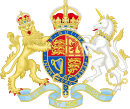
The Government of Barbados (GoB), is a unitary parliamentary republic, where the President of Barbados is the head of state and the Prime Minister of Barbados is the head of government.

The CaymanIslands is a self-governing British Overseas Territory, and the largest by population. The 264-square-kilometre (102-square-mile) territory comprises the three islands of Grand Cayman, Cayman Brac and Little Cayman, which are located south of Cuba and north-east of Honduras, between Jamaica and Mexico's Yucatán Peninsula. The capital city is George Town on Grand Cayman, which is the most populous of the three islands.

The government of the Isle of Man is a parliamentary representative democracy. The Monarch of the United Kingdom is also the head of state of the Isle of Man, and generally referred to as "The King, Lord of Mann". Legislation of the Isle of Man defines "the Crown in right of the Isle of Man" as separate from the "Crown in right of the United Kingdom". His representative on the island is the Lieutenant Governor of the Isle of Man, but his role is mostly ceremonial, though he does have the power to grant Royal Assent.

Politics in Jamaica takes place in the framework of a representative parliamentary democratic constitutional monarchy. The 1962 Constitution of Jamaica established a parliamentary system whose political and legal traditions closely follow those of the United Kingdom. As the head of state, King Charles III - on the advice of the Prime Minister of Jamaica - appoints a governor-general as his representative in Jamaica. The governor-general has a largely ceremonial role, with their parliamentary function consisting simply of granting royal assent to bills which have passed Parliament. Jamaica constitutes an independent Commonwealth realm.
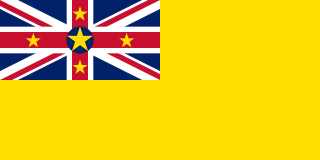
The politics of Niue take place in a framework of a parliamentary representative democratic dependency, whereby the Chief Minister is the head of government, and of a non-partisan system. Niue is self-governing in free association with New Zealand and is fully responsible for internal affairs. New Zealand retains some responsibility for external affairs, in consultation with Niue. The Niue Constitution Act 1974 (NZ) vests executive authority in His Majesty the King in Right of New Zealand and the Governor-General of New Zealand. The constitution specifies that in everyday practice, it is exercised by a Cabinet of the Premier of Niue and three other ministers. The premier and ministers must be members of the Niue Assembly, the nation's legislative assembly. The Judiciary is independent of the executive and the legislature.

His Majesty's Government of the Virgin Islands is the democratically elected government of the British Overseas Territory of the British Virgin Islands. It is regulated by the Constitution of the British Virgin Islands.
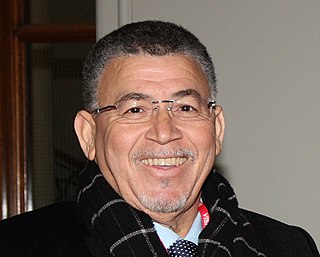
William McKeeva Bush, is a Caymanian politician, former Speaker of the Parliament of the Cayman Islands and former Premier of the Cayman Islands. Bush, the former leader of the Cayman Democratic Party, is the elected member for the constituency of West Bay West. He is the territory's longest ever serving political figure with service spanning over 35 years, previously serving his tenth term in the Parliament of the Cayman Islands.

George Town is the capital and largest city in the Cayman Islands, located on Grand Cayman. As of 2022, the city had a population of 40,957, making it the largest city of all the British Overseas Territories.
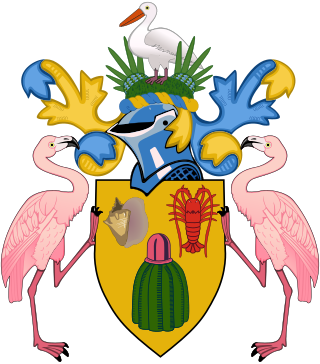
Politics of the Turks and Caicos Islands takes place in a framework of a parliamentary representative democratic dependency, whereby as of August 9, 2006 the Premier is the head of government, and of a multi-party system. The islands are an internally self-governing overseas territory of the United Kingdom. The United Nations Committee on Decolonization includes the Turks and Caicos Islands on the United Nations list of non-self-governing territories. Executive power is exercised by the government. Legislative power is vested in both the government and the Legislative Council.

The States Assembly is the parliament of Jersey, formed of the island's 37 deputies and the Connétable of each of the twelve parishes.

The lowest courts in the Isle of Man are the summary courts, Coroner of Inquests, Licensing Court, Land Court, etc. These courts are presided over by magistrates. There are two stipendiary magistrates, the High Bailiff and the Deputy High Bailiff, along with lay justices of the peace.
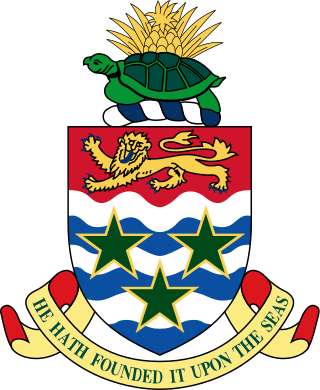
The Parliament of the Cayman Islands is the unicameral legislature of the British Overseas Territory of the Cayman Islands. It is composed of 21 members; 19 elected members for a four-year term and two members ex officio.

Sir Alden McNee McLaughlin Jr., is a Caymanian politician, former Premier of the Cayman Islands and current Speaker of Parliament of the Cayman Islands. McLaughlin previously served as leader of the People's Progressive Movement party from February 2011 – March 2021. McLaughlin is the elected member for the Red Bay Constituency in George Town, currently serving his sixth term in the Parliament of the Cayman Islands. He has been an elected representative in the Parliament of the Cayman Islands continuously since 2000.

Lesbian, gay, bisexual, and transgender (LGBT) people in the Cayman Islands may face legal challenges not experienced by non-LGBT residents. Both male and female types of same-sex sexual activity are legal in the Cayman Islands. Despite anti-gay attitudes expressed by certain members of the government, social acceptance by the Caymanian public has been known to be some of the best in the Caribbean. Some have attributed this to the strong British influence in the territory.
The royal prerogative is a body of customary authority, privilege, and immunity recognized in common law as belonging to the sovereign, and which have become widely vested in the government. It is the means by which some of the executive powers of government, possessed by and vested in a monarch with regard to the process of governance of the state, are carried out.

The Constitution of the British Virgin Islands is a predominantly codified constitution documented primarily within the Virgin Islands Constitution Order, 2007 a statutory instrument of the United Kingdom. The 2007 Constitution was the fourth written constitution of the British Virgin Islands, and superseded the 1976 constitution. In addition to the constitution itself, a number of the constitutional powers of the British Virgin Islands government are specified a "letter of entrustment" from the Foreign and Commonwealth Office which delegates powers to the British Virgin Islands government to represent itself in certain external affairs.
The Constitution of Tuvalu states that it is “the supreme law of Tuvalu” and that “all other laws shall be interpreted and applied subject to this Constitution”; it sets out the Principles of the Bill of Rights and the Protection of the Fundamental Rights and Freedoms.
Same-sex marriage is currently not recognised in the Cayman Islands. The island's statutory law limits marriage to different-sex couples. A lawsuit with the Grand Court successfully challenged this ban in March 2019; however, the Court of Appeal overturned the ruling in November 2019. Same-sex civil partnerships are legal following the enactment of the Civil Partnership Law, 2020 on 4 September 2020.

General elections were held in the Cayman Islands on 14 April 2021 to elect the 19 members of the Parliament. The elections were originally set to be held on 26 May, but Premier Alden McLaughlin asked Governor Martyn Roper to dissolve Parliament on 14 February, triggering early elections. The move was made in order to avoid a no-confidence motion against Speaker McKeeva Bush, who had received a two-month suspended jail sentence in December 2020 for assaulting a woman in February 2020.
Disallowance and reservation are historical constitutional powers in Canada that act as a mechanism to delay or overrule legislation passed by Parliament or a provincial legislature. In contemporary Canadian history, disallowance is an authority granted to the governor general in council to invalidate an act passed by a provincial legislature. Reservation is an authority granted to the lieutenant governor to withhold royal assent from a bill which has been passed by a provincial legislature; the bill is then "reserved" for consideration by the federal cabinet.
















